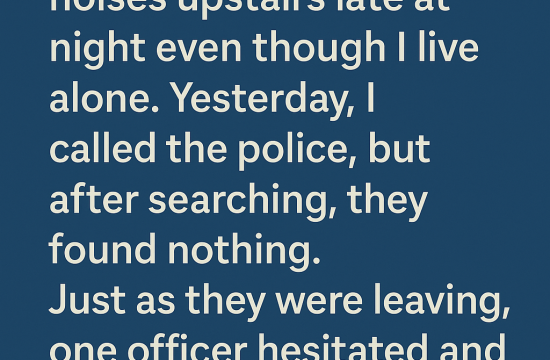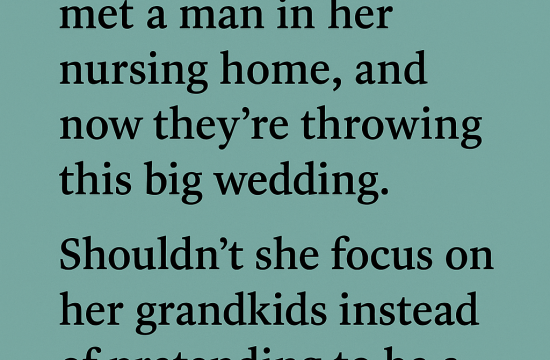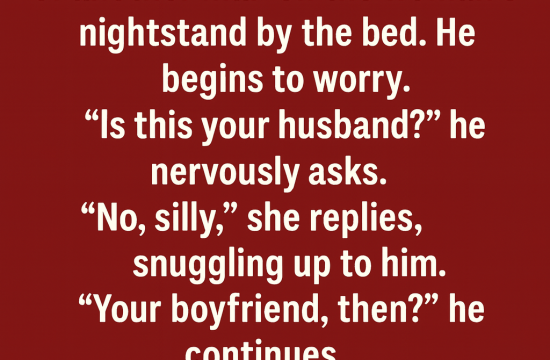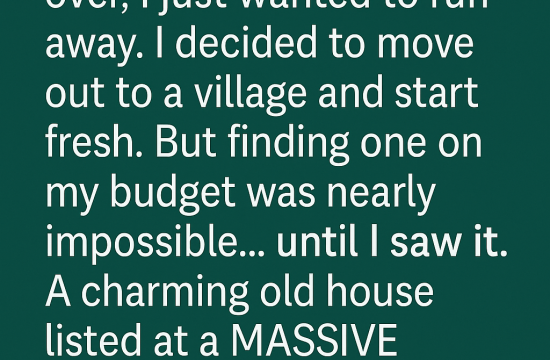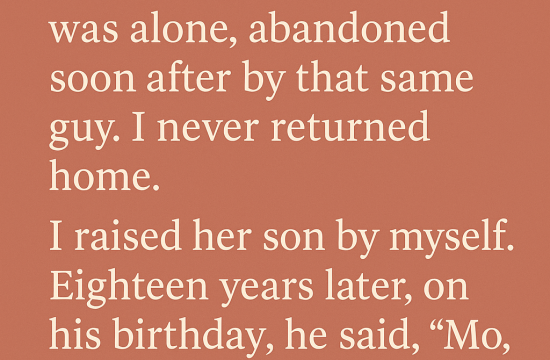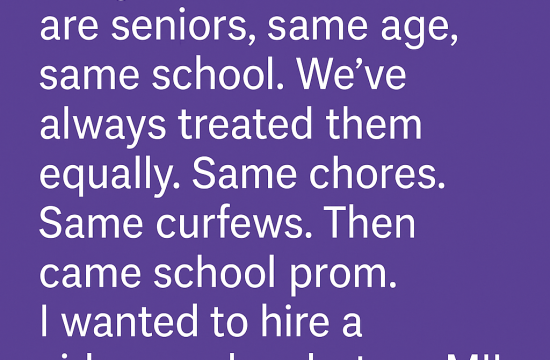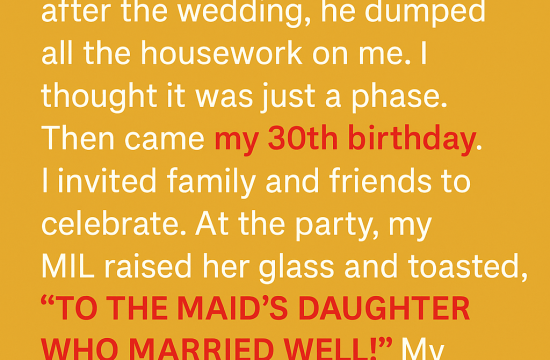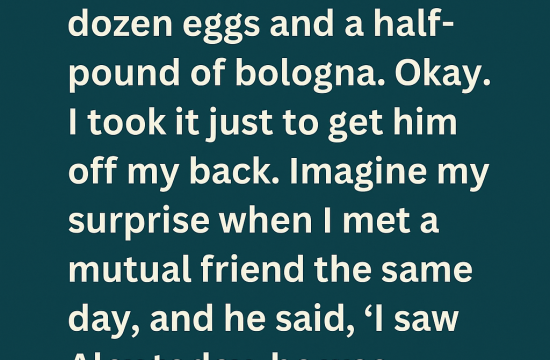My husband cheated on me with a 20-year-old secretary while I was in the hospital, fighting for my life.
And I forgave him.
We started from what I thought was a clean slate. Therapy, talks, promises—it all seemed like the right thing to do, especially for our daughter. I convinced myself people could change. That love was worth salvaging. That forgiveness was strength.
But I didn’t know how deep the cracks really ran until recently—when our 12-year-old daughter had a meltdown that shattered what little illusion I had left.
She was crying uncontrollably, her small frame shaking with emotion, when she blurted out:
“Dad asked me if I wanted him to leave you.”
I froze. My blood ran cold. For a moment, I couldn’t breathe.
She sobbed harder, repeating it through clenched teeth and trembling lips. She had no reason to lie—no angle, no manipulation. Just pain.
I sat her down on the couch, wrapping her in a blanket, gently stroking her back as I tried to gather myself. I asked her when he had said this. Her voice broke as she said, “A few weeks ago. In the car, after school.”
According to her, he’d casually brought up that sometimes marriages “don’t work” and asked if she’d be okay if he found someone “who makes him happy.” She hadn’t understood it all back then, but now it made her angry—and confused.
After she went to her room, I sat in the kitchen in silence. My coffee went cold. The air felt heavier than usual. I thought I had moved on. I thought I had healed.
That night, when my husband walked in the door, I didn’t say anything at first. I needed to know if he would come clean on his own. He kissed my cheek, asked about dinner, and acted like the world was fine.
Not one flicker of guilt. Just the same mask he’d always worn.
Halfway through dinner, I broke the silence.
I told him what our daughter had said.
He blinked, then scoffed. He said she must’ve misunderstood. Then he pivoted, claiming he was “just giving her real-world wisdom,” “speaking hypothetically.” He called me overly sensitive.
But I wasn’t confused—I was done.
Because what he’d really done was start prepping her for his next betrayal, easing his conscience by dragging her into it. That wasn’t fatherhood. That was manipulation.
That night I didn’t sleep. I lay awake, staring at the ceiling, reliving the night he confessed to the affair. The promises. The tears. The therapy. And now, this.
The next morning, I told him I needed space. He laughed. Said I was being dramatic. That I’d “regret kicking him out.”
I handed him his bag.
He left in a huff, swearing I’d come to my senses.
The days that followed were quiet. Unnervingly so. But the absence of his presence made the air feel lighter. I focused on my daughter. I let her cry. I let her talk. And slowly, she did.
She told me he’d been making comments like, “Young women know how to treat a man,” and “Life’s too short to stay unhappy.”
It wasn’t just one conversation. It was grooming—of her emotions, for his exit.
A week later, a friend of mine who works in his office texted me.
“Is everything okay? People say he’s been cozy with a new intern.”
I didn’t need proof. My gut already knew.
Still, I waited. For my daughter’s sake, for clarity. But when I confronted him, he gaslit me again. Accused me of snooping. Of ruining the family with my “insecurity.”
Two weeks later, he appeared at my doorstep with flowers and a forced smile.
He said he missed us. Wanted to “start fresh.” But his eyes didn’t reflect remorse—they reflected entitlement.
I told him I knew everything. About the intern. About the conversations with our daughter. That this time, I wasn’t begging for scraps.
He tried raising his voice. I didn’t flinch.
Then he said it again—the line that once crushed me:
“You’ll never make it on your own.”
But this time, those words lit a fire instead of fear.
I looked him dead in the eye and replied,
“Watch me.”
Then I shut the door. For good.
The next few months were hard. Budgeting. Solo parenting. Picking up overtime. Counseling sessions. School drop-offs.
But something unexpected happened: the tension faded.
My daughter laughed more. Slept better. Stopped jumping at every loud sound.
And I started breathing easier.
Six months later, I received a message from the same secretary he’d cheated on me with years ago. She apologized. Told me she’d heard he was already chasing the intern—and trying to spin the story like I had driven him away.
She said, “I know better now. He’s a manipulator. I’m sorry I didn’t back then.”
Strangely, I didn’t feel anger. I felt relief. Closure.
Because I didn’t need proof anymore. I had truth.
A year later, I was in a different place—mentally, emotionally, spiritually. I had a small freelance gig on the side. I joined a hiking group. I read books again. I made new friends.
My daughter and I created our own rituals—Sunday pancakes, Friday movie nights, spontaneous road trips. We were healing.
One day, after a walk in the park, she looked at me and said,
“I’m glad you made Dad leave.”
I asked why.
She replied,
“Because now I don’t have to hear him say mean things about you when you’re not around.”
That broke me—and rebuilt me at the same time.
I hadn’t just saved myself. I had protected her.
Months later, I heard the intern had dumped him. That he was trying to win her back the same way he once tried with me.
And I smiled—not from spite, but peace.
Because the cycle would continue—but I was no longer in it.
Final Reflection:
I learned the hard way that forgiveness without accountability only delays the inevitable.
I used to believe in second chances. Now I believe in patterns. When someone shows you who they are, believe them the first time.
Forgiveness is brave. But walking away—when you know they haven’t changed—is even braver.
So if you’re reading this, and you’re stuck between staying or saving yourself, let me say this:
You are not hard to love. You are not asking for too much. You are asking the wrong person.
You don’t have to wait for them to break your heart twice to realize it’s not your job to glue it back together again.
Leaving wasn’t weakness.
It was the beginning of our freedom.




